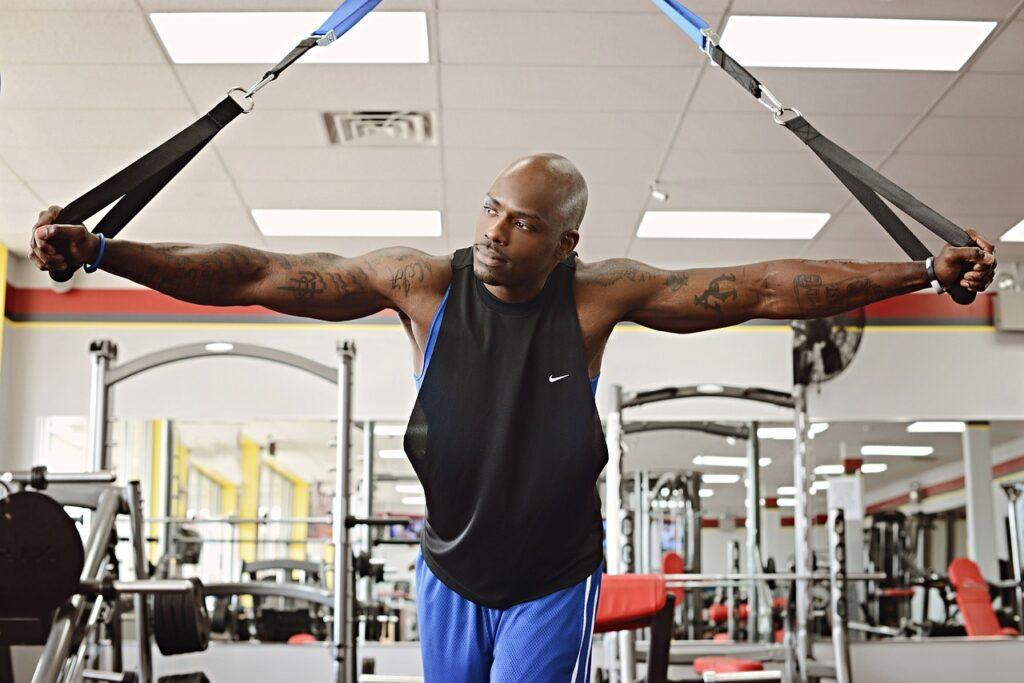

Are you tired, irritable, and lacking motivation? Are you struggling to build muscle or maintain your weight? If so, you may be experiencing low testosterone levels. Testosterone is a hormone that plays a crucial role in developing and maintaining male characteristics, but it’s not just men who can experience low levels.
In fact, testosterone deficiency affects both men and women and can have a range of negative impacts on physical and mental health. In this article, we’ll explore the top 10 signs that your testosterone may be low, so you can take steps to improve your overall well-being. But before that, let’s look at testosterone in general.
What is Testosterone?
Testosterone is a hormone primarily produced in the testicles in males and in smaller amounts in the ovaries in females. It’s also produced in the adrenal glands of both sexes.
It plays a crucial role in developing male reproductive tissues, such as the testicles and prostate, and secondary sex characteristics, such as increased muscle mass, facial hair growth, and deepening voice.
The testosterone hormone also has many other functions, including sperm production, maintaining bone density and strength, red blood cell production, and mood regulation.
Testosterone production usually reduces as you age. According to the American Urological Association, about 40 percent of men over 45 have low testosterone. Some men experience low testosterone levels in their early 20s to 30s. This is not age-related testosterone decline but a testosterone deficiency, a medical condition. Certain medical conditions, such as obesity, diabetes, and thyroid disorders, can cause it.
If your testosterone levels drastically fall, you may experience various symptoms. However, these symptoms are not clear evidence of low testosterone. You must consult a doctor for a diagnosis.
After the doctors determine the symptoms you are experiencing, you will need two blood tests performed in the morning when testosterone is at its highest level to confirm that you are indeed experiencing low testosterone. The good news is that a number of the adverse health effects of low testosterone can be rectified or, at the very least, improved with testosterone therapy if low T is actually the cause.

10 Signs Your Testosterone is Low
You may be experiencing low testosterone levels if you have the following signs.
1. Decreased Libido
Testosterone is responsible for regulating sexual desire. As you age, you may experience a low sex drive. Still, if your testosterone levels are low, you may experience a drastically reduced interest in sex or find it difficult to achieve or maintain an erection.
2. Erectile Dysfunction
Low testosterone levels can also contribute to erectile dysfunction, which is the inability to achieve or maintain an erection that is firm enough for sexual intercourse. Testosterone signals the brain to produce nitric oxide. This molecule triggers a series of chemical reactions to relax blood vessels in the penis, allowing for increased blood flow and erection.
When your testosterone level is low, you may find it difficult to achieve or maintain an erection or spontaneous erection when sleeping.
However, the relationship between erectile dysfunction and testosterone is inconclusive. Some men with low testosterone hormone can still have an erection. In fact, in a 2016 review, it was found that nearly half of the men with erectile difficulties did not show improvement after undergoing testosterone treatment.
Other conditions that can cause erectile dysfunction include:
- Diabetes
- Stress and anxiety
- Obesity
- Heart disease
- Thyroid disorders
3. Fatigue and Lack of Energy
Testosterone is crucial in maintaining energy levels and overall vitality. If your testosterone levels are low, you may feel weary, even after getting enough sleep or resting.
You may also find it hard to recover quickly after working out as you used to. As a result, your ability to perform daily activities or exercises can be affected, reducing your overall fitness and general quality of life.
Therapy can help you improve your energy level. According to a study, 54.2 of men who received testosterone therapy improved their energy levels.
4. Loss of Muscle Mass and Strength
Testosterone is necessary for the maintenance and growth of muscle mass and strength. Enough testosterone drives your body into an anabolic state (building muscles state) by helping your body produce and assemble proteins to create a foundation for lean muscle mass.
When testosterone level drops, your body goes into a catabolic state. Instead of building muscles, it breaks the muscle tissues. This can lead to muscle mass and strength loss, making it difficult to perform physical activities and increasing the risk of falls and injuries.
5. Increased Body Fat
Testosterone helps regulate body fat distribution. Low testosterone can lead to an increase in body fat, particularly around the abdomen. Since it also makes you fatigued, you can lack the motivation to work out or do activities that might help you reduce body fat. This can increase body fat, weight, the risk of obesity, and other health conditions, such as diabetes and heart disease.
6. Decreased Bone Density or Mass
Usually, bones are constantly broken down and rebuilt. Testosterone aids in the production of bones and strengthens them. When your testosterone level drops, the bones break down faster than they can rebuild. As a result, you experience osteoporosis or low bone density.
Bone density normally decreases as you age. You are at higher risk of fractures and osteoporosis when combined with low testosterone levels.
7. Decreased Body Hair
Testosterone is responsible for growing and maintaining body hair. As you age, testosterone decreases, which makes balding or losing hair a normal part of life.
While it’s normal, a drastic drop in testosterone can lead to decreased body hair, including facial hair, chest hair, beard, and pubic hair.
8. Decreased Mental Clarity
Testosterone receptors are also found in the amygdala and cerebrum parts of the brain. It plays a crucial role in cognitive function, including memory and concentration.
When the brain receptors lack ample testosterone hormones, you may experience decreased mental clarity and cognitive function.
9. Mood Changes
Testosterone can affect mood and emotional well-being. Testosterone helps regulate neurotransmitters—chemicals in the brain that affect mood.
When testosterone levels are low, there is a decrease in the levels of these neurotransmitters, which can lead to mood changes. Studies have shown that men with low testosterone levels are more likely to experience depression, irritability, and anxiety.
10. Decreased Testicle Size
Testosterone is necessary for developing and maintaining male reproductive tissues, including the testicles. The testicles produce testosterone, so if testosterone levels are low, there will be no steady flow of testosterone in the testicles. Therefore, the tissues in the testicles, penis, and scrotum may shrink in size.
The shrinkage of the testicles can also lead to decreased sperm production, which can cause infertility.

Ways to Boost Your Testosterone Level Naturally?
While testosterone levels decline naturally with age, there are several natural ways to boost testosterone production. Here are six ways to naturally boost your testosterone:
1. Exercise Regularly
Regular exercise, especially weightlifting, has been shown to increase testosterone levels. When you exercise, your body releases hormones like growth hormone and testosterone to support muscle repair and growth. These hormones also help your body build muscle mass, strength, and endurance.
Excessive weight gain reduces testosterone production—exercise helps to boost testosterone by reducing and maintaining weight. In addition, exercising can help reduce insulin resistance and inflammation, which are both factors that can negatively impact testosterone production.
2. Get Enough Sleep
Adequate sleep is essential for testosterone production. During sleep, your body produces hormones that support growth and repair, including testosterone. In addition, sleep deprivation can lead to an increase in the stress hormone cortisol, which can suppress testosterone production.
According to a study, sleeping for 5 hours reduces testosterone levels by 15%. For every extra hour of sleep you get, your testosterone levels increase by 15%.
3. Manage Stress
High-stress levels can lead to the production of the hormone cortisol, which can suppress testosterone production. Managing stress through meditation, yoga, or deep breathing exercises can help reduce cortisol levels and increase testosterone production.
4. Eat a Healthy Diet
A dense diet rich in protein, healthy fats, nutrients, and whole grains can help boost testosterone levels naturally. When you accumulate excessive abdominal fat, your body produces excess aromatase enzymes, which convert testosterone hormone into estradiol, reducing your testosterone levels.
A well-balanced diet enhances weight loss and helps you maintain a healthy weight, which increases testosterone production. For instance, protein builds muscle mass, while healthy fats like those found in avocados and nuts can help increase testosterone production.
Whole grains contain fiber and other nutrients that can help reduce inflammation and improve insulin sensitivity, which is important for testosterone production. Avoid processed foods, sugary drinks, and alcohol, as they can decrease testosterone levels.
5. Take Supplements
While there are various testosterone supplements on the market currently, it’s good to choose supplements with natural ingredients. Certain supplements, such as vitamin D, zinc, and magnesium, are natural and have been shown to increase testosterone levels.
Vitamin D is also vital for bone health and immune function. It is recommended to consult with a licensed healthcare provider before taking any supplements.
6. Maintain a Healthy Weight
Obesity is associated with lower testosterone levels. Maintaining a healthy weight through diet and exercise can help to boost testosterone production naturally. Losing weight can help reduce insulin resistance and inflammation.
When Should You See a Doctor?
If you are experiencing any of the above symptoms, it is important to talk to your doctor. They can perform a blood test to determine your testosterone levels and recommend the appropriate treatment.
Treatment for low testosterone may include testosterone replacement therapy, which involves the administration of testosterone through injections, gels, or patches. Other treatments may include lifestyle changes, such as exercise and diet modifications, and the treatment of underlying medical conditions, such as obesity and diabetes.
Conclusion
Low testosterone can significantly impact a man’s physical and emotional well-being. If you are experiencing any of these symptoms, it is important to talk to your doctor and determine the underlying cause of your symptoms. You can improve your testosterone levels and overall health and well-being with proper treatment.
Additionally, boost your testosterone level by exercising regularly, getting enough sleep, managing stress, eating a healthy diet, taking supplements, and maintaining a healthy weight. However, speak with a healthcare provider before changing your diet or exercise routine, especially if you have any underlying medical conditions.






















You must be logged in to post a comment Login